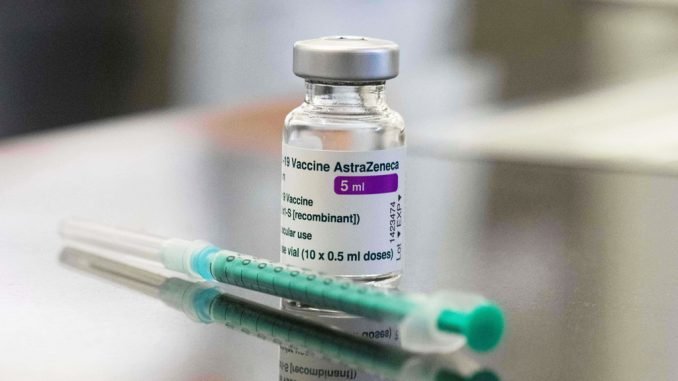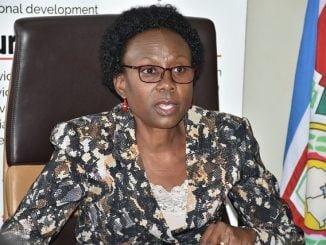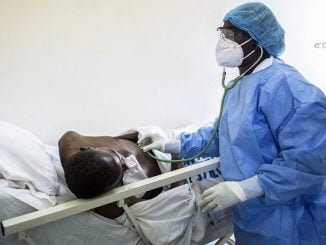
Kampala, Uganda | URN | Kampala has been named among the 18 cities in low and middle-income countries that qualify for grants targeting COVID-19 vaccines preparedness.
The funding from the Bloomberg Philanthropies’ Partnership for Healthy Cities initiative will see Uganda’s Capital city receive up to $50,000 funding to support communication awareness needed for vaccine confidence.
The Bloomberg Philanthropies’ Partnership for Healthy Cities initiative on Thursday said in a press statement that the grants come as mayors around the world grapple with implementing equitable COVID-19 vaccination programs for their citizens.
The grants also to be received by neighboring Rwanda’s city Kigali will help the cities to support their planning for vaccine distribution rollouts with an emphasis on reaching high-risk populations.
The vaccine preparedness activities being funded with grants of up to $50,000 for six months include communication campaigns to increase vaccine confidence, community outreach to vulnerable populations, supplies to set up mass vaccination sites, enhancement of data capacity, training for healthcare workers and community leaders, and critical tools to achieve city-wide coordination.
The 18 cities according to the statement are members of the Partnership for Healthy Cities, an initiative supported by Bloomberg Philanthropies in partnership with the World Health Organization (WHO) and Vital Strategies.
The other cities in Africa include: Abidjan, Côte d’Ivoire; Accra, Ghana; Cape Town, South Africa, Harare, Zimbabwe Ouagadougou, Burkina Faso. The others are in South America and Asia.
“Local leaders have helped spearhead the world’s response to the pandemic from the beginning, and that now includes pushing to ensure vaccinations happen as quickly as possible, especially in high-risk communities,” said Michael R. Bloomberg, founder of Bloomberg LP and Bloomberg Philanthropies and WHO Global Ambassador for Noncommunicable Diseases (NCDs) and Injuries.
“We’re working with cities throughout Africa, Asia, and Latin America to increase equitable vaccine access by providing much-needed support and technical assistance. This initiative will help countries save more lives – and help the whole world overcome this devastating pandemic.”
“The equitable distribution of vaccines is not only a moral imperative, it is also an epidemiological and economic imperative,” said Dr Tedros Adhanom Ghebreyesus, Director-General, World Health Organization (WHO).
“As long as this virus is transmitting anywhere, the higher the chances that a variant will emerge that evades vaccines, and the longer the global economic recovery will take. We simply will not end the pandemic anywhere until we end it everywhere. These grants will support city leaders to reach some of the most vulnerable groups with vaccines.”
Founded in 2017, the Partnership for Healthy Cities has grown into a network of 70 cities around the world committed to saving lives by preventing NCDs, such as heart disease, diabetes, chronic lung disease and cancer, and injuries.
In March 2020, Bloomberg Philanthropies expanded support to help member cities by providing tools and information for COVID-19 prevention and mitigation measures as part of the $40 million Bloomberg Philanthropies COVID-19 Global Response Initiative.
“Cities are drivers of public health and over the past year have mounted a remarkable COVID-19 response. The path to widespread vaccination is complex and requires detailed planning, coordination, data management, and logistics support by urban leaders and their staff,” said José Luis Castro, President and CEO of Vital Strategies.
“We look forward to using our expertise to help cities improve their ability to reach high-risk communities as they develop and implement equitable policies and practices to safeguard health and rebuild stronger health, social, and economic systems.”
Cities in the Partnership are using the funds in creative, targeted ways to reach their high-risk populations.
Read Also: Ugandan gov’t worried as 99% of teachers shun COVID-19 vaccination
Cape Town, South Africa, is planning to use the new funds to reach the more than 530,000 people estimated to be living in homeless shelters, unhoused people, and migrants.
The city’s methods will include advertising on minibus taxis, the dominant mode of public transport for low-income commuters, deploying mobile billboards and sky banners, and fighting misinformation using radio programming.
This will be complemented by mobile information and vaccine registration units that will partner with trusted community leaders to optimize messaging and hold socially distanced face-to-face consultations with people in hard-to-reach areas.
“It is important that while our communities have access to health care, they also have access to reliable health information. We want to make sure that our communities are properly informed about COVID-19 vaccination so that they can make well-informed decisions,” said Dan Plato, Executive Mayor of Cape Town.
“We’ve seen the power of working with trusted local voices to share COVID-19 safety messages with vulnerable people earlier in the pandemic, and we plan to build on those efforts to encourage vaccination for all.”



